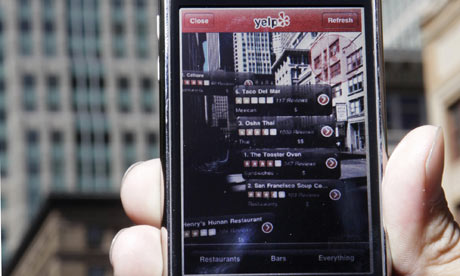A wiggle of the fingers will change television channels or turn the volume up or down. In videogames, your movements will control your onscreen digital avatar. It's called 3D gesture recognition and while it may not be in stores this Christmas a number of technology companies are promising that it will be by next year. Softkinetic, a Brussels-based software company, is one of the leaders in the gesture-control field and has teamed up with US semiconductor giant Texas Instruments and others to make this touchless vision of the future a reality...
..."We're in that transition to a time when gestural input will be quite natural," Kay said. "From what I've seen of the demos they're pretty close."On the gaming front, "using a camera in real time to capture motion and then take the representative avatar from that and play it on a screen with other elements in a virtual world is a pretty compelling experience," he said.
Read more - 'Controlling the TV with a wave of the hand'
-

